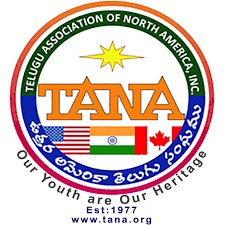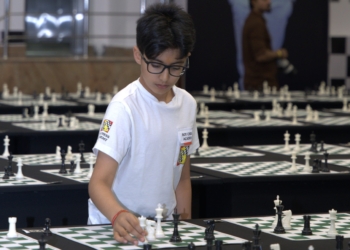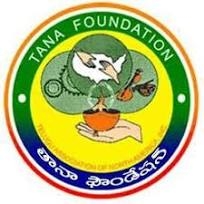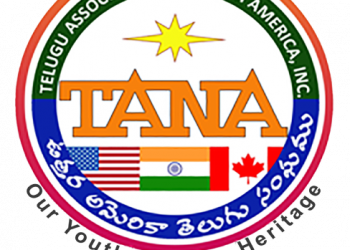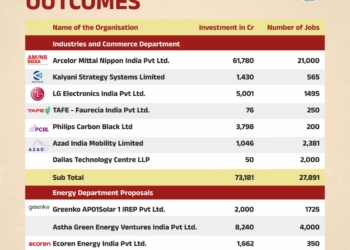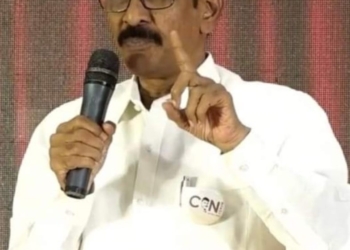నాలుగైదు నెలల పైగా జరిగిన సుదీర్ఘ విచారణ అనంతరం సంచలనాత్మకమైన ‘తానా’ మెంబర్షిప్ ఓటు హక్కుల కేసులో ‘తానా’ బోర్డు చర్యలను సమర్ధిస్తూ నేడు (ఏప్రిల్ 26 2023 న) మేరీలాండ్ కోర్ట్ వెలువరించిన తీర్పు ‘తానా’ తెలుగు కమ్యూనిటీలో ప్రకంపనలు పుట్టించింది.
ముఖ్యంగా ఎన్నికలు రసవత్తరంగా జరుగబోతున్న ప్రస్తుత తరుణంలో ‘కొడాలి-లావు’ ల వర్గమునకు భారీ ‘పరాజయం’ గాను, ‘గోగినేని-తాళ్లూరి’ ల వర్గానికి నైతిక ‘విజయంగా’ను పలువురు భావిస్తున్నారు.
ముఖ్యంగా ఎం వీ సి కమిటి సమష్టి బాధ్యత అనే విషయాన్ని వక్రీకరిస్తూ, ఎం వీ సి చైర్మన్ ‘నిరంజన్ శృంగవరపు’ నే ఈ సమస్యకు పూర్తి కారణంగా ప్రత్యర్థి వర్గాలు చేస్తున్న విష ప్రచారం నుండి అయన సగర్వంగా బయటపడినట్లే.
పూర్తి కోర్టు తీర్పు పూర్తి పాఠాన్ని ‘నమస్తే ఆంధ్ర’ పాఠకుల సౌలభ్యం కోసం క్రింద పొందు పరుస్తున్నాం
ఈ కోర్ట్ తీర్పు పూర్తి పాఠాన్ని పరిశీలిస్తే క్రింది విషయాలను ముఖ్యంగా గమనించవచ్చును!
1) ‘తానా’ చర్యలను సమర్ధిస్తూ కేసును కొట్టివేయడం జరిగింది.
2) కోర్ట్ కేసు ఖర్చులను గురించిమాత్రమే తదుపరి చర్య ఉండవచ్చును.
3) అనుకోకుండా వచ్చిన వేలాది మంది సభ్యుల మూలకంగా వెరిఫికేషన్ ప్రక్రియ పూర్తి అయి ఉండకపోవచ్చును, అంతేకాని ఉద్దేశ్య పూర్వకము గా జరిగినట్లుగా భావించడం లేదు.
4) ఎం వీ సి చైర్మన్ ఇచ్చిన వాఙమూలంను నమ్ముతున్నట్లు, ఉద్దేశ్యపూర్వకంగా ఆలస్యం చేసిట్లు భావించటం లేదు. వేలాది సభ్యులు ఒక్కుమ్మడిగా చేరడంవలనను, వెరిఫికేషన్ అంతిమ తేదీను గమనించకపోవడము వలననే ఈ పరిస్థితి కలిగినది.
5) మొత్తం 30 వేలమందికి ఓటు హక్కు ఇవ్వడానికై ప్రయత్నించిన బై లాస్ సవరణ వీగిపోవడం లోను ‘తానా’ బోర్డు చర్యలు సమర్ధనీయంగాను, భార్యతయుతంగాను ఉన్నట్లు గమనించవచ్చును.
6) ‘తానా’ సంస్థను కోర్టు ఖర్చులు ఇతరత్రా భారం నుండి బయటపెట్టడానికి గాను ప్రత్యేక తీర్మానం ద్వారా 5 గురు కక్షిదారులకు ఇచ్చిన ఓటు హక్కు కూడా ‘తానా’ మంచిని కోరి చేసిన చర్యగా ఒప్పుకోవలసినది. ఈ తీర్మానం ఈ 5 గురికి మాత్రమే గాని వేరెవ్వరికి ఉపయోగించడానికి గాదని ఉండడం ఇక్కడ గమనించాలి
7) ఈ కేసును వేసిన కక్షిదారులు ఇటువంటి పరిస్థితి లోనే ఉన్న మిగతా 17 వేల సభ్యులకు కూడా ఈ కేసును ఆపాదించాలన్న అభ్యర్ధన కూడా ఆమోదయోగ్యంగా లేదు.
8) అలాగే ‘తానా’ బోర్డు చెప్పినట్లు తాజాగా 2022 జనవరిలో మెంబర్షిప్ పొంది మే లో వెరిఫికేషన్ పూర్తయినందున అట్టి సభ్యులందరకూ 2023 ఎన్నికలకు గాక తదుపరి జరిగే అన్ని ఎన్నికలలకు ఓటు హక్కు ఉంటుందని ఇచ్చిన వివరణ సబబుగా ఉంది.
9) ఈ విషయంగా జరిగిన ప్రతి బోర్డు మీటింగ్ 3 గంటలకు పైగా జరిగినందున, బోర్డు మీటింగ్ నకు ముందు చర్యల విషయమై సరైన సమయం ఇవ్వలేదనడం కూడా సమర్ధనీయంగా లేదు
పైవిషయాలను, ఇంతకుమునుపు జరిగిన విచారణల పత్రాలను గమనిస్తే కోర్ట్ వారు తదుపరి అధ్యక్షులు ‘నిరంజన్ శృంగవరపు’ వాదనను, వాఙమూలాన్ని నమ్ముతూ పరిగణలోకి తీసుకున్నట్లు గాను, అదే సమయంలో ఈయనపై అభియోగాన్ని మోపేటట్లుగా ‘తానా’ ప్రస్తుత అధ్యక్షులు ‘లావు అంజయ్య చౌదరి’ ఇచ్చిన వాఙమూలాన్ని గాని వాదనను గాని పరిగణలోకి తీసుకోలేదని భావించవచ్చును.
ఇక ఈ తీర్పు విషయమై ప్రతిస్పందన తదుపరి ‘కొడాలి-లావు’ ల వర్గము నిరాశకు లోనైనట్లు గాను, తదుపరి చర్యలపై గందరగోళం నెలకొన్నట్లు, తమ వర్గ వ్యూహకర్తల సామర్థ్యంపై నమ్మకం సడలినట్లు చెపుతున్నారు.
ఇదే సమయంలో ఇదే విషయంగా నైతిక మద్దతుతును పొందిన ‘గోగినేని-తాళ్లూరి’ ల వర్గము తదుపరి ఎన్నికల సమరానికి ద్విగుణీకృత ఉత్సహంతో సాగే అవకాశం ఉన్నది. రేపు జరుగబోయే బోర్డు మీటింగులో ‘తానా’ ఎన్నికల తుది నిర్వహణ తేదీ వెనక్కు జరిపే ప్రక్రియ ఆలస్యంజరిగే కొద్దీ వీరు మరింత బలాన్ని సమీకరించుకొనే అవకాశంకూడా కనిపిస్తోంది.
ఇక ‘టీం కొడాలి’ తరపున పోటీ చేస్తున్న నాయకులు రెండు వివిధవర్గాలకు చెందినందువల్ల వచ్చే పోరాట సమన్వయ లోపంవల్లనూ, ఒక వర్గం తమ ముఖ్య లక్ష్యం ఎన్నికలా లేదా వచ్చే ‘తానా’ కన్ఫెరెన్స్ నిర్వహణా అనేది తేల్చుకోలేకపోవడం, ఇంకో వర్గం ఎన్నికల ప్రచారం కంటే తాము ధన ప్రభావంతో చేర్పించిన ఓట్లే దరికి జేరుస్తాయని నమ్మటం వల్లనూ ప్రస్తుతానికి పోటీలో ప్రత్యర్థివర్గంతో పోలిస్తే వెనుక పడినట్లే భావించాలి. ముందునుంచీ అభ్యర్థిగా ప్రచారంలోఉన్న ‘నరేన్ కొడాలి’ కోర్టుకేసుల నిర్వహణపైగాకుండా, తన నాయకత్వ పటిమను వర్గాల మధ్యన సమన్వయముతో ప్రారంభించి సాగవలసిన అవసరం కనిపిస్తోంది.
అయితే ఎన్నికల సమయం మరియు ప్రచార సమయం ఇంకా చాల ఉన్నందున రాబోయే పరిణామాలు ఎటు మొగ్గు చూపుతాయో గమనిద్దాం.
అంతిమంగా ‘తానా’ సంస్థ గెలవాలని అలాగే వర్గ, పెత్తందారీ, ధన స్వామ్యాలు అంతరించి, నిజమైన సేవకులతో ‘తానా’ కార్యవర్గాలు నిండి మరింత సేవను ఘనంగా చేయాలనీ ‘తానా’ మరింతగా వెలిగిపోవాలని అధికులు కోరుతున్నారు.
AMERICAN ARBITRATION ASSOCIATION
In the Matter of the Arbitration between
Case Number: 01-22-0004-3460
Krishna Gudipati and Hazarath Darapaneni (Claimant’s)
-vs-
Telugu Association of North America, Inc. (Respondent)
Arbitration Award
This is a dispute between the Telegu Association of North America Inc. (TANA), and two persons who applied for membership, including full voting and related rights in TANA, Krishna Gudipati and Hazarath Darapaneni, Claimants. The Bylaws of TANA, in Article XIX, Section 2, provide that every applicant for membership and every member and director “agrees to arbitrate disputes arising under or relating to this membership[.]” Your undersigned Arbitrator was appointed to serve as arbitrator in this matter, pursuant to the Commercial Arbitration Rules of the American Arbitration Association on November 21, 2022. Having been so designated, and having been duly sworn as having heard the allegations and proofs of the parties, I hereby AWARD as follows:
Discussion.
The Membership verification committee (MVC) is tasked with determining “whether the applicant has provided sufficient information in their application to enable the MVC to make a determination that the applicant is entitled for membership in accordance with the Articles of Incorporation of TANA and th[e] Bylaws” and “whether the proper membership fee has been paid.” Article 5, Section 8(b). The Bylaws of TANA provide that the MVC is required to” complete the application review process within fifteen (15) days of receipt of the application from the Treasurer.” Delays in the membership verification process will restrict the voting rights of new applicants, because, in order to vote in the election, which occurs in odd-numbered years, their applications must be verified by the MVC “by April 30 of the [previous] Even Numbered Year.” Bylaws, Article XIV, Section 1(e). In 2022, an unusual number of persons—17,000—applied for membership in TANA, submitting their required dues of $ 125, but the MVC did not complete its verification work on time. The chairperson of the committee testified that he was unaware of the completion deadline, and I believe his testimony. Although as chair, he should have been aware of the bylaw provisions pertaining to his committee, I infer no willful blindness.
On May 27, the TANA Board of Directors (BOD) learned that almost 17,000 January applicants had not been approved before the April 30 deadline and a June 1 meeting was held about the issue. Between June 18 and 20, discussions occurred between various board members and officers about how to extend the deadline. On June 23 the Board held a special meeting where an Emergency Bylaw Amendment was proposed to amend the By-laws to extend the time for the MVC to complete its verification process, at least when a surge of applications occurred. But after
considerable discussion, the amendment failed to pass. One faction of Board members believed that by-law amendments concerning elections should never be made effective until after the term of the current executive board members expired. This sentiment was based in part on By-law Article XVIII, section 2(e), set forth below. Discussion and debate about this issue occurred at several board meetings over several months without resolution. Claimants filed a Demand for Arbitration on October 13, 2022, followed by a Complaint for Permanent Injunction a day later.
While discovery in the arbitration was proceeding, on February 13,2023, with the BOD still divided on the proposed by-law amendment, it passed, with a slim majority, the following Resolution (Resolution):
The Board hereby approves a resolution to resolve the pending litigation matters concerning Plaintiffs’ eligibility to vote in the 2023 elections, thereby allowing [the Claimants] to participate, including nominating and seconding candidates and voting, in the 2023 TANA organizational elections. This resolution is solely limited to those two pending matters and should not be construed to apply to any subsequent challenges or grievances, and that will each be evaluated on their merits.
The significance and effect of this Resolution is disputed in this arbitration.
After completion of discovery and resolution of motions, I heard two days of testimony, followed by a third partial day of testimony and closing arguments.
In defense against Claimant’s demand for injunctive relief according them “member in good standing” status, specifically including voting rights, Respondent TANA argues that Maryland law, which governs this dispute, recognizes the business judgement doctrine. Under this doctrine, for a court or arbitrator to interfere with the decision of a corporate board of directors, claimants must show fraud, dishonesty, or incompetence. NAACP v. Goldberg 342 MD. 663, 673 (1992). (“All that is required is that persons in such positions act reasonably and in good faith in carrying out their duties.. Courts will not second-guess the actions of
directors unless it appears that they are the result of fraud, dishonesty or incompetency.”) This includes voluntary memberships organizations. Id. at 682 (“We believe that the very importance and effectiveness of the NAACP merit significant judicial deference to its internal management.”) Claimants argue, and I agree, that under this standard, arbitrary action can serve as the basis for fraud. So, a central issue here is whether the Board’s actions were arbitrary such that they amounted to fraud in this context. An organization’s actions that are inconsistent with its own by-laws may be considered arbitrary — and therefore fraudulent —and invite judicial review.
The MVC’s Failure to timely complete its verification process was not an action inconsistent with its bylaws. It was simply a mistaken failure to get its work done on time. Claimants argue that TANA acted inconsistently with its bylaws when it passed the Resolution in that the resolution purported to give the claimants voting rights even though their applications were not approved by April 30, 2022. They contend the resolution violated Article IV section 1(e), defining “Member in Good Standing”, which required that to achieve such status, one’s application must be verified by April 30 of the Even-Numbered year.
Three Bylaws sections are pertinent:
- Article XVIII, Section 2, subpart (e) provides: Any future amendments to the definition of Member in Good Standing or eligibility to vote or participate in elections………………………………………………………………. shall become effective only after the
installation of a new Executive Committee.”
- Article XIX, Section 1 (b) says; “any grievances or disputes relating to organizational elections are resolved in accordance with Article XIV, Section ”
- Article XIV, Section 5 states: Any dispute regarding the nomination and election process shall be referred to, and decided by, the Board of Directors, whose decision shall be final. The Board of Directors shall have the power to make any adjustments to the composition of the [Nominations and Elections Committee] or the process being followed by the [that] Committee, or both, which, in its sole discretion, it deems necessary to resolve such dispute[.]
Claimants contend that there was fraud and/or arbitrariness because the Resolution purported to accomplish exactly what was prohibited by Article VIII. Section 2—that any amendment defining Member in Good Standing could not become effective while the Executive Committee remained in office. Indeed, argue Claimants, this is the reason as some directors voted against the proposed Bylaw Amendment. Claimants’ interpretation of Section 2 as prohibiting admission of two members not verified by the MVC after the April 30 deadline is, to be sure, one plausible reading of the Bylaws.
But there are other plausible interpretations of these Bylaws. Respondent points to Bylaw Article XIV, Section 5, which states: ‘Any dispute regarding the nomination and election process shall be referred to and decided by, the Board of Directors, whose decision shall be final.” The BOD interprets this Section to override the definitional section regarding “Member in good standing” set forth in Article XIV, Section 1(e)) all election- related disputes. Respondent contends that this certainly is an election-related dispute and that the relief requested by Claimants is to accord them voting rights. The BOD also points out that Section 5 requires no super-majority of its members to exercise this power. Respondent’s interpretation is also plausible.
These varying provisions are sufficiently at odds with each other to create an ambiguity in the Bylaws that leaves room for interpretation. Under the business judgment doctrine, however, it is not for this Arbitrator—or any court—to resolve an ambiguity in the Bylaws of an incorporated entity or to decide which
of two interpretations is better. It is for the Board of Directors to do so. The Arbitrator’ only examines whether there was fraud, dishonesty or incompetence in the Board’s decision that it had the authority under the Bylaws to adopt the Resolution. NAACP v. Goldberg, 342 Md. 663.
I find no fraud or dishonesty in the Board’s action. Nor is there incompetence. The terms of Section 5 of Article IV are sufficiently straight-forward in giving the BOD seemingly unfettered responsibility and control over elections to survive any challenge based on dishonesty, fraud (shown by arbitrary action) or incompetency. It is logical that –to ensure continuity–a non-profit corporation would intend there to be a infallible method for resolving any disputes relating to voting and elections, without interference from an outside source, including a court or arbitrator. A non-profit organization is designed to use its resources for charitable, educational, or similar purposes set forth in its Article of Incorporation—not to engage in costly dispute resolution.
In resolving this issue, I have considered, to some extent, evidence about the reasons for the heated disagreements among TANA Board members. After hearing the testimony, I find as a fact that the BOD acted in good faith in carrying out its duties, and I see no fraud or dishonesty. I find credible the testimony that in passing this Resolution the Board believed the MVC had made a mistake in not completing verification of the surge of applicants by the required date, and that the Board was seeking solutions to remedy this error.
Although some members of the Board believed a bylaw amendment was the best remedy, others were against a bylaw amendment on the ground that it would set a bad precedent—allowing directors to amend the
Bylaws in order to establish an effective date for approval of new members during the tenure of the Executive Committee. Yet none of the multiple witnesses called by Claimants testified to any evidence that the directors of TANA had ulterior motives or acted without good faith. Certainly, there was evidence that directors vehemently disagreed about how to solve this problem. But my experience tells me that board members in nonprofit associations can easily feel strong emotions about how to operate the organization, even when no personal interests are involved. I could speculate about ulterior or even fraudulent motives, but the evidence simply does not support such a conclusion.
Claimants also make the initially appealing argument that the Board, although adopting the Resolution to accord these Claimants membership and voting rights, arbitrarily declined to do so for the other 17,000 applicants who had not filed suit against TANA. Claimants point out that these other applicants stood in the same position as Claimants and should have been treated the same. I have given this argument serious consideration, but ultimately, I am not persuaded. I find the Board was legitimately focused on the costs and strain of the current arbitration proceeding, which only involved the current Claimants. The Board has a legitimate interest in protecting TANA from the adversities of a formal arbitration hearing. Again, under all these circumstances, I do not conclude that the Board was arbitrary or incompetent. I am not persuaded otherwise by Claimants’ argument that the Board’s decision to resolve an immediate problem was arbitrary or incompetent because it would only increase the likelihood of future litigation over voting rights. The BOD, as the decision-making arm of TANA had the discretion to resolve the threat of the immediate, pending arbitration, involving only two or three people, without addressing the likelihood that about 17,000 others would also sue to enforce their claims. 1
Claimants contend that the Resolution gives them no assurance that they will be entitled to vote in future elections after 2023. I disagree. Initially, the Resolution grants Claimants the right to vote in the elections upcoming this year and there is no evidence suggesting this might be revoked. As to future years, I am persuaded by Respondent’s counter that under Article XIV, Section 1 (d), after this election, Claimants meet the criteria for voting. As Respondent points out, once this upcoming election is over, Claimants will indisputably be “members in good standing”. This defined term is used in Article XIV, TANA NOMINATIONS
TANA’s Bylaws are clear that “[o]nly Life Members … in good standing (defined in Section 1.e…) shall be eligible to nominate or second any nomination, or to vote in TANA elections.” Bylaws, Article XIV, Section 8(a), attached as Exhibit B in TANA’s Motion. The definition of a “member in good standing” is one “whose application has been received by the TANA treasurer no later than January 31 of the Even-Numbered Year and whose application has been verified by the Membership Verification Committee by April 30 of the Even Numbered Year.” Bylaws, Article XIV, Section 1(e).
1 I also conclude that these claimants have no right to make a claim on behalf of other applicants who are not parties hereto. This decision does not have any effect or impact on such other people.
AND ELECTIONS.” Under Section 1 thereof, elections are held in odd-numbered years, and the nominations process begins during the prior even-numbered year. Claimants’ applications were received before January 31 of 2022 (the even-numbered year) and the only obstacle to their becoming Members in Good Standing for the 2023 elections was that the MVC failed to verify their applications by April 30, 2022. Yet after that deadline, their applications were verified by the MVC, so that when the next election cycle rolls around, they qualify as Members in Good Standing.
Finally, although Claimants argue that circulation of the Resolution at the last minute before the Board’s meeting shows arbitrary action, I am not convinced. The law is full of examples of people doing things at the last minute—it might even be said to be human nature. Also, I find credible testimony that the Resolution was debated for 2-3 hours before voting, and that is sufficient time for individual Board members to reach a full understanding of its meaning.
Conclusion. For the above reasons, I make an Award in favor of Respondent, and thereby decline to issue an injunction as requested by Claimants. This Award is in full settlement of all issues, claims and counterclaims raised herein. Any arguments made by either party not explicitly addressed herein are hereby resolved in a manner consistent with this Award.
This is a partial Award. I am keeping the record open in case any party wishes to claim attorneys’ fees or costs pursuant to the Arbitration Agreement. I make no decision herein regarding whether to award such fees or costs. The parties should file any such claim within 15 days of receipt of this Award. If no such claim is made by such date, the record shall close and the Award made herein becomes final.
April 26, 2023
Date: Hon. Sally D. Adkins (Ret.), Arbitrator

